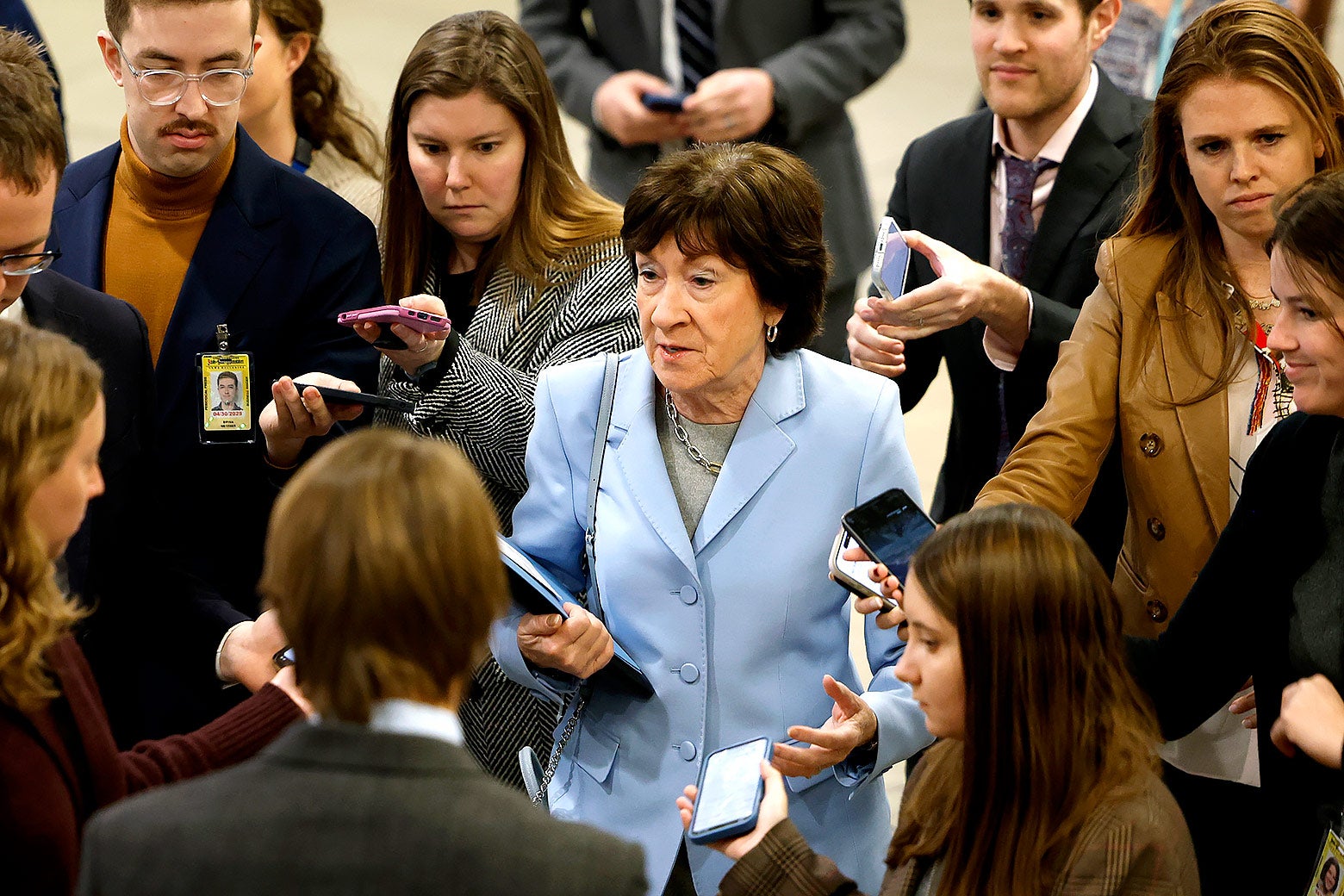Sign up for the Slatest to get the most insightful analysis, criticism, and advice out there, delivered to your inbox daily.
This week, with little fanfare, the Senate confirmed two of the most dangerous members of Donald Trump’s Cabinet. The conspiracy theorist Robert F. Kennedy Jr., who has spread disinformation about the safety of vaccines and suggested that COVID-19 is a bioweapon designed to spare the lives of Ashkenazi Jews and Chinese people, will lead the Department of Health and Human Services. Tulsi Gabbard, whose stalwart support for Russia and personal meetings with Bashar al-Assad led John Bolton to call her “a hand grenade ready to explode,” will oversee the country’s most sensitive information-gathering on matters of national security as director of national intelligence.
When Trump first floated these nominees, pundits raised doubts that these two individuals so obviously poised to wreak potentially murderous havoc would be entrusted with our country’s health and intelligence, particularly given the closely divided Senate. Surely, moderate Republicans like Sen. Susan Collins—who is up for reelection next year in the reliably blue state of Maine—would consider Kennedy and Gabbard too treacherous to swallow?
Nope. Collins voted to confirm both nominees, along with every one of her Republican colleagues save for this year’s rising resistance hero, Sen. Mitch McConnell.
It’s become a cliché, at this point, for centrists and liberals to pray to Collins and her ideological counterpart, Sen. Lisa Murkowski of Alaska, as potential saviors whenever an outrageous vote comes up. There is always a hope that, to save their own seats in the Senate, they’ll choose the route of the moderate, reasonable Republican—the image Collins has expressly cultivated over her nearly three decades in office.
Americans should know better by now. Sure, Collins has occasionally voted against her own party on wildly unpopular bills (like Obamacare repeal). She’s also done it when she could be sure she would not derail a Republican priority, like when she voted against Amy Coney Barrett’s nomination to the Supreme Court. But she has never lived up to the hope that she would be any kind of bulwark against the worst effects of a Trump presidency.
Collins proved herself unworthy of that mantle during Trump’s previous term. She voted against Betsy DeVos as secretary of education, but only after casting the deciding vote to advance her nomination out of committee. She voted to make Brett Kavanaugh a Supreme Court justice, then gave an impassioned speech about why she didn’t believe Christine Blasey Ford. She famously opined, after voting to acquit Trump in his first impeachment, that the president had learned his lesson and would “be much more cautious in the future” about obeying the law and refraining from abuse of power.
No one making a sober, rational assessment of Trump’s behavior would ever accuse him of learning a lesson, much less exercising caution to stay within the bounds of the law. Whether Collins has been a willing abettor to Trump’s agenda to stay on the good side of conservative Mainers, to fend off potential challengers from the right, because of her fear of Trump’s threatened retribution or because of her own sincerely held beliefs doesn’t even matter anymore. She simply lacks the adequate combination of judgment, intellect, moral compass, and mettle to take a meaningful stand against a grudge-holding authoritarian.
Even if she did, she’d need at least a couple of Senate Republicans to join her to make any kind of difference. Alongside Murkowski and McConnell, Collins did vote against alleged abuser-slash-alcoholic Defense Secretary Pete Hegseth—but J.D. Vance broke the tie for Hegseth, so he made it through anyway. (Ah, well, nevertheless!) In today’s GOP, there is even less appetite for defying Trump than there was last time around. Collins’ assent on Kennedy and Gabbard is yet another sign of the festering rot at the heart of the Republican Party, which is setting essential arms of the U.S. government ablaze and blithely standing by as Trump assumes the powers of the legislative branch as his own.
Collins’ “moderate” brand no longer holds up in the Trump era. There is no way to be a putatively centrist, sensible Republican in an extremist party that defies good sense. If Collins conducted her Senate business as a center-right voter might, she hardly would have approved any of Trump’s Cabinet nominees. But that is not how partisan politics works in this country. MAGA has so completely reshaped conservative America that whether a center-right voter even exists anymore is up for debate.
Collins has been there for Trump every time it has counted. It’s time to stop expecting her to be someone she’s not. To be a Senate Republican today is to endorse a wholesale assault on liberal democracy and nod along with whatever Trump tries to do, to align yourself with an assortment of conspiracy theorists, Christian nationalists, and billionaires intent on the federal government’s destruction. And Susan Collins is a Republican, through and through.

















